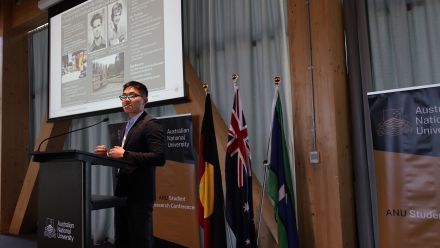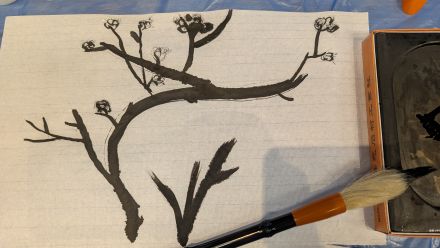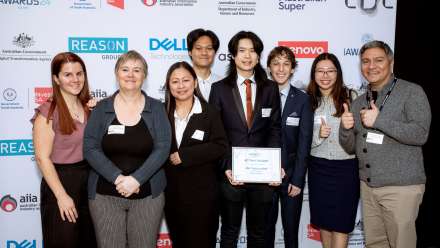Navigating Uni and Networking for Success
A student is first generation if their parents or guardians didn’t attend university, which includes students with an Out of Home Care experience.
Gathered in the sunny Kambri Gallery on 24th April, students and staff with first generation university experiences heard from Dr Fiona Scotney, ANU Director of the Tuckwell Scholarship Program, and a panel of ANU alumnae who shared reflections on what it means to be a first-generation university student at a university in Australia.
The stories were personal and inspiring, and they connected with the lived experiences shared by students and staff in attendance: feelings of not belonging in their first weeks and months of study, being told they’re out of place, and feeling overwhelmed by the mountain of things you don’t know about university life. Hearing about these experiences and the advice our speakers gave made our participants feel “understood”, “inspired”, and “that [they] belonged”.
Dr Scotney used a vivid simile to describe her experience that really resonated with the students:
“For me, going to university was like travelling to a country by yourself, not knowing anyone, not being able to speak the language, and then your phone battery dies. It was exciting and terrifying and there were some colourful mishaps, but once I learnt the language, I stayed for 12 years because I knew I had found my place.”
The aim of the Connections Event was to start a conversation about First-Generation students, create visibility for them, and foster meaningful connections between those students that support them to “see themselves” at ANU and persist past the obstacles they face to achieve their aspirations. Through the lived experience discussed by the amazing panellists, Georgie Chambers, Alicia Lillington, and Zoe Piper, the students who participated came away “encouraged to meet people” and “resonating with panellists’ experiences”.
Each panellist had advice about navigating the university experience, with Georgie encouraging students, “Never be afraid to ask for help, these are probably the same questions that many other students have as well”. With students looking to build their professional network, the panellists offered advice on ways to go about that, including Alicia’s advice that “"Having an outcome to your networking is important as it helps people find practical ways to help and support you". When you go for coffee with someone who could be a good point of contact for your network, Alicia suggested, be prepared to ask something specific of them such as to think of you for a future role in their company. This advice resonated with Georgie’s reflection that “you never know when saying yes to coffee or networking can lead to a job".
And what advice did the participants have for other First-Generation students?
“Don’t stress… everything will be ok”!
“You have heaps of time in front of you, don’t rush. No seriously, you have heaps of time!”
“Ask for opportunities! The worst they can say is no”.
One activity that had participants “Map your study/work path or plan” showed the variability of pathways between university education and paid employment, with some students going from high school straight to work, some to university, some to TAFE, and some focusing on other things before eventually ending up at university. It demonstrated that everyone’s path is different – a sentiment that was reflected in the experience of the panellists, each of whom were from rural-remote and/or low-SES backgrounds. As Alicia said, "Challenge your own assumptions".
Are you a student whose parents or guardians didn’t go to uni? Keep an eye on Student Life for future First-Generation student networking events! Get involved and join this growing community who are equally supportive and inspiring!


